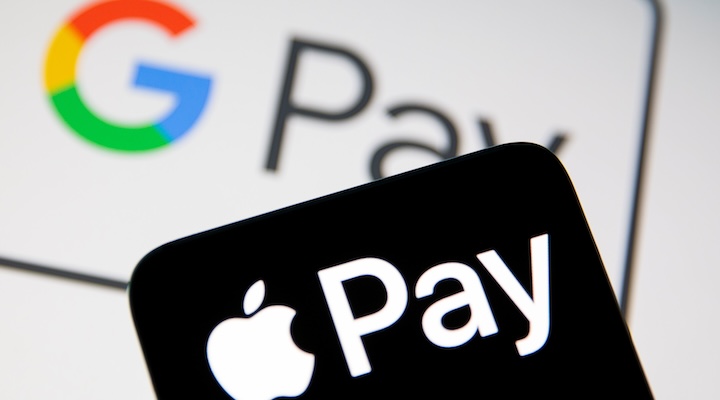A US government watchdog’s plans to supervise companies like Apple and Alphabet’s Google that provide digital wallets and payment apps to consumers risks needlessly stifling innovation and keeping some players out of the market, a main tech lobby group said on Monday.
The warnings from the Computer & Communications Industry Association (CCIA) — whose members also include Amazon, Facebook parent Meta and X, formerly known as Twitter — responded to November’s proposal by the US Consumer Financial Protection Bureau (CFPB), which said tech giants’ smartphone payments and wallets services rivaled traditional payment methods but lacked the same consumer safeguards.
The CFPB proposal, which has yet to be finalized, would subject such companies to the same kind of supervision currently imposed on banks, with agency examiners inspecting compliance with laws on unfair or deceptive practices and privacy protections, as well as scrutinizing executives’ conduct.
Officials expect the proposal, as currently written, would cover 17 companies responsible for 13 billion payments annually.
Some bank industry representatives have reacted warmly to the proposal, saying companies that provide bank-like services should be regulated and directly supervised like banks.
However, Krisztian Katona, CCIA’s head of regulatory policy, said in a statement seen by Reuters the proposal risked doing more harm than good “as broad, overly burdensome or heavy-handed digital regulation could significantly hinder new startups in this industry.”
In a comment letter to be submitted to the CFPB also seen by Reuters, CCIA said the CFPB’s proposal had failed to identify the specific risks to consumers it sought to address and improperly viewed non-bank digital providers and banks as direct competitors.
“Even if there are some instances where banks and nonbank entities compete, the reality of the market shows that there are more instances where their synergies help consumers, providing complementary services,” the letter said.
- Reporting by Douglas Gillison; Editing by Chris Reese, of Reuters.







